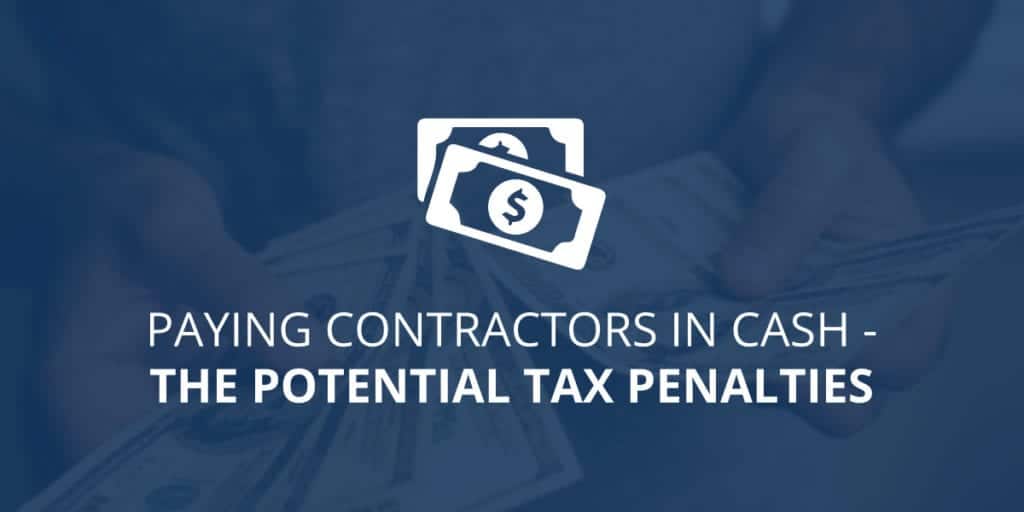
What are the risks of paying contractors in cash? If you make cash payments to independent contractors, the first thing you should know is that there is nothing inherently illegal about doing so. Cash is still a perfectly good form of payment.If you have cash on hand and want to use it to pay your contractors, then you can absolutely do so.
However, you must do so legally, and you must be prepared to prove that your cash payments to contractors were legal in the event that your company is audited by the California Employment Development Department (EDD) or the Internal Revenue Service (IRS).
The Government’s Perspective on Why Companies Pay Contractors in Cash
While you may have a valid reason for paying contractors in cash, when it comes to understanding the potential legal ramifications of doing so, you need to view cash payments to contractors from the government’s perspective: If you are paying in cash instead of using checks or electronic transfers (which create a record of your transactions), you must have a reason for doing so. In the eyes of state and federal tax authorities, this reason is most likely either:
- To avoid payroll taxes;
- To help the contractor evade its income tax obligations; and/or,
- To falsely report your company’s expenses in order to reduce its taxable income.
Regardless of which of these purposes your cash payments are intended to further, they can lead to civil enforcement action and potentially even criminal prosecution. In either case, the penalties can be substantial, and you will need to hire an experienced tax attorney to help you avoid severe consequences. Even if you did not intend to violate the law, if you are facing an audit or investigation in relation to paying contractors in cash, you could be at risk, and you need to treat your situation accordingly.
Tax Penalties Related to Unreported or Improperly-Reported Cash Payments
1. California State Payroll Taxes
If you failed to pay state payroll taxes in relation to your cash payments to contractors, then you will be dealing with the EDD. Targeted EDD audits can be invasive and time-consuming, and the EDD aggressively enforces employers’ payroll tax obligations.
In addition to paying all past-due payroll taxes, your company will also be required to pay interest and a 15% penalty.If you do not pay the EDD within 30 days, an additional 10% penalty will be assessed. If you do not pay the amounts due, the EDD can levy your company’s bank accounts, file liens, and even seize business assets.
2. California State Income Taxes
Delinquent California state income taxes trigger interest and penalties as well. This includes a standard penalty of 5%, which can increase to up to 25% of the total amount due. If you are charged with criminal tax evasion or aiding your contractors in evading state income tax, then you could be at risk for substantial additional fines and years of imprisonment.
3. Federal Payroll and Income Taxes
Evading federal payroll or income tax is an extremely serious matter that can lead to multiple criminal charges under the Internal Revenue Code (IRC) and other federal statutes. Similar to facing prosecution for tax evasion under California law, being targeted by the IRS Criminal Investigation Division can lead to substantial financial penalties (in the hundreds of thousands or millions of dollars) and potentially years or decades behind bars. While this is undoubtedly the worst-case scenario, it is not unheard of, and it is a realistic possibility for business owners charged with intentionally utilizing cash payments to defraud the federal government.
Speak with an Experienced California Tax Lawyer in Confidence
If you have been contacted by the EDD, the Franchise Tax Board, the IRS, or any other state or federal agency with regard to cash payments that your company made to contractors, it is important that you speak with an attorney immediately. For a complimentary case evaluation, call 619-595-1655 or request an appointment online now.

Leave a Reply